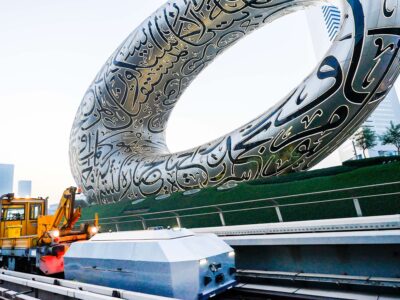Industry standards are constantly evolving in the Middle East transport sector. During the past year, for example, the logistics industry has witnessed a far more acute focus on international accreditation, in particular towards security.
This scenario is relatively unsurprising though, with global providers arriving in the Middle East and bringing with them fresh thoughts towards issues more dominant in the evolved markets of Europe and the United States. In turn, regional players cannot be left behind and adopt strategies of a similar business vein, before it eventually infiltrates down to the smaller local players, albeit on a smaller extent.
Aramex’s decision to intently focus on corporate responsibility, marked by the recent publication of its sustainability report, is most certainly an intriguing development for the regional transport sector. The first logistics company from the Arab world to begin accounting its activities in terms of social and environmental impact, the transparency of such a move could bring with it consequences for the whole sector.
Of course, leading international courier companies, namely the big three – UPS, FedEx and DHL – have long been involved with such schemes, collecting a number of accolades along the way. UPS, for example, received the ‘2007 Keep America Beautiful’ award in recognition of its leadership in environmental issues and efforts to promote and sustain volunteerism in America. The heavyweight has even brought these values to the Middle East, with annual volunteering events held with staff in Dubai.
However, with international companies, this is far from unusual. Indeed, the public have almost grown to expect multinationals to take part in such forms of corporate responsibility. In the Middle East, on the other hand, this is not always the case and Aramex’s recent commitments towards sustainability should therefore be applauded. Bearing its soul to the mercy of the public, the company has embarked on a relatively unexplored policy for a local player.
Thankfully the support network is in place. The Dubai Centre for Corporate Values, for instance, aims to promote the awareness and practice of Corporate Social Responsibility (CSR) in the Middle East business sector, while international bodies, such as Global Reporting Initiative (GRI), offer voluntary guidelines.
It is this fact, combined with Aramex’s latest efforts, that gives hope to the idea that a host of other local logistics players will openly review their social and environmental impact. Not just offering a better reputation for their company, the policy could enhance the reputation of the logistics industry in the Middle East as a whole, ultimately ensuring for a brighter future to all those involved and the community around them.







